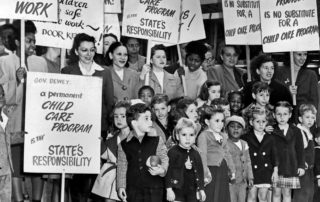Climbing the Leadership Ladder: Women’s Progress Stalls
What prevents women from reaching the highest rungs of the leadership ladder? This report seeks to answer this by taking a closer look at the representation of women in management and leadership positions across the United States—and the barriers that hold organizations back from achieving full gender and racial equity in leadership.











